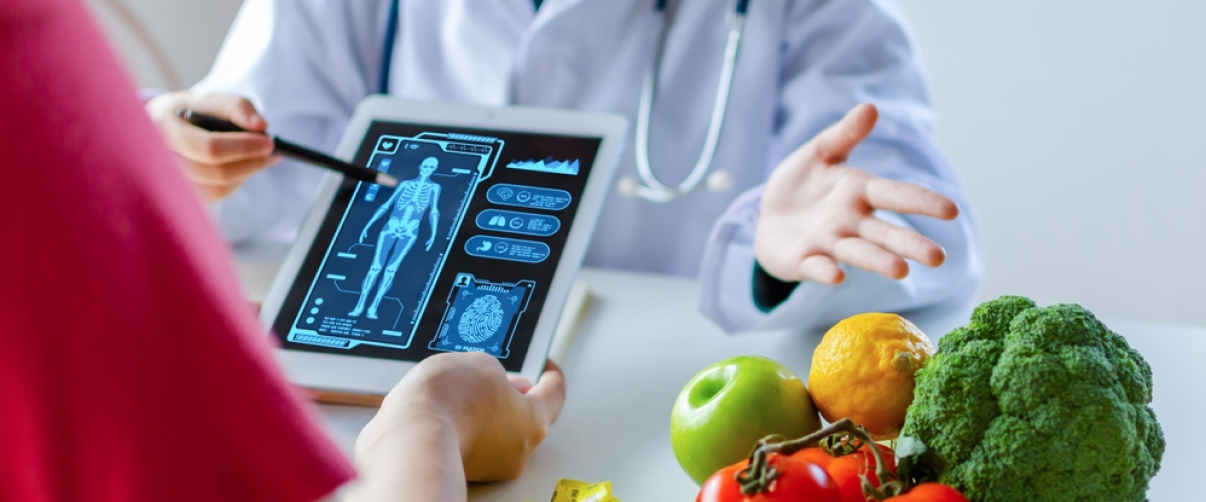In an era where personalization is increasingly permeating every aspect of our lives, it’s no surprise that nutrition is following suit. The concept of tailoring one’s diet based on genetic makeup, often termed nutrigenomics or personalized nutrition, promises a future where we eat not just for pleasure or health, but in harmony with our unique genetic code.
Personalized Nutrition: How Your DNA Affects What You Should Eat

But how much can our DNA really tell us about what we should eat? Is it the key to unlocking optimal health, or is the science not quite there yet?
The Promise of DNA-Based Diets
Imagine a diet plan designed exclusively for you—not just based on your preferences or goals but on the very blueprint of your biological makeup. This is the alluring promise of DNA-based diets. Companies have sprung up offering to analyze your genetic code to provide personalized dietary recommendations.
For instance, services like Habit and InsideTracker offer at-home testing kits that analyze aspects of your DNA, metabolic responses, and blood biomarkers to categorize your nutritional needs. Habit, for example, assesses over 60 biomarkers to create a personalized profile, aiming to deliver meal plans that suit your genetic predispositions.
These companies suggest that by understanding your genetic variations, known as single nucleotide polymorphisms (SNPs), you can optimize your diet to prevent diseases, manage weight, and enhance overall health.
The Reality: Genetics vs. Lifestyle
While the concept is appealing, the science behind personalized nutrition is still evolving. Studies have shown that genetics can influence how we metabolize certain nutrients. For instance, variations in the FTO gene can affect metabolism and how we process fats and proteins. Nutrigenomic testing can reveal if you have such variants, potentially guiding dietary adjustments.
However, genetics account for only a fraction of our nutritional needs and health outcomes. Experts warn that DNA-based diets may not be the silver bullet they appear to be. According to registered dietitian Nicole Hahn, “The science for these personalized diets isn’t robust yet.” Factors such as age, lifestyle, existing health conditions, and environmental influences play significant roles in how our bodies respond to food.
Moreover, identical twins have been found to have different metabolic responses to the same meals, highlighting that genetics is just one piece of a much larger puzzle.
The Science Behind Nutrigenomics
Nutrigenomics explores the interaction between nutrients and genes at the molecular level. It aims to understand how genetic variations affect nutrient absorption, metabolism, and overall health. For example, some individuals may have a genetic predisposition to lactose intolerance or gluten sensitivity, which could guide dietary choices.
The PREDICT 1 Study investigated how genetics, meal composition, exercise, sleep, and gut microbiome interact to influence metabolic responses. The findings suggested that while genetics have a notable role, they are not the sole determinants of how our bodies react to food. Meal macronutrients significantly impact blood sugar levels, and gut bacteria play a role in lipid metabolism.
Limitations and Ethical Considerations
One of the main challenges with DNA-based diets is the lack of comprehensive scientific evidence supporting their effectiveness. The Academy of Nutrition and Dietetics advises that personalized nutrition isn’t ready for routine practice due to insufficient data from large-scale studies.
There’s also the risk of data privacy concerns and potential misinterpretation of genetic information. Consumers may make drastic dietary changes based on limited or misunderstood data, possibly leading to nutritional deficiencies or other health issues. Expensive plans and tracking devices could lead to unhealthy obsessions with data, inaccurate food exclusions, and even social isolation.
Practical Implications: What Should You Do?
If you’re intrigued by the idea of personalized nutrition, it’s essential to approach it with a balanced perspective. Consulting healthcare providers or registered dietitians is crucial before making significant dietary changes based on DNA tests. They can help interpret genetic data in the context of your overall health, lifestyle, and preferences.
Remember that general dietary guidelines are still effective for most people. Emphasizing a varied, balanced diet rich in fruits, vegetables, whole grains, lean proteins, and healthy fats is a well-supported approach. Making gradual, sustainable changes to your eating habits, along with considering factors like exercise, sleep, and stress management, remains the cornerstone of good health.
The Future of Personalized Nutrition
The potential of nutrigenomics and personalized nutrition is undeniable. As research advances, we may see more nuanced and effective ways to tailor diets based on genetic profiles. However, we’re not quite there yet. The field needs more robust studies and validated methodologies before DNA-based diets can become mainstream practice.
In the meantime, focusing on evidence-based nutritional practices and listening to your body’s responses to different foods is the most practical approach. Personalized nutrition may one day revolutionize how we eat, but until then, the best diet is one that nourishes both body and soul, tailored by informed choices rather than solely by genetic code.
Note: This article is for informational purposes and should not replace professional medical advice. Always consult with a healthcare provider or registered dietitian for personalized dietary guidance.











